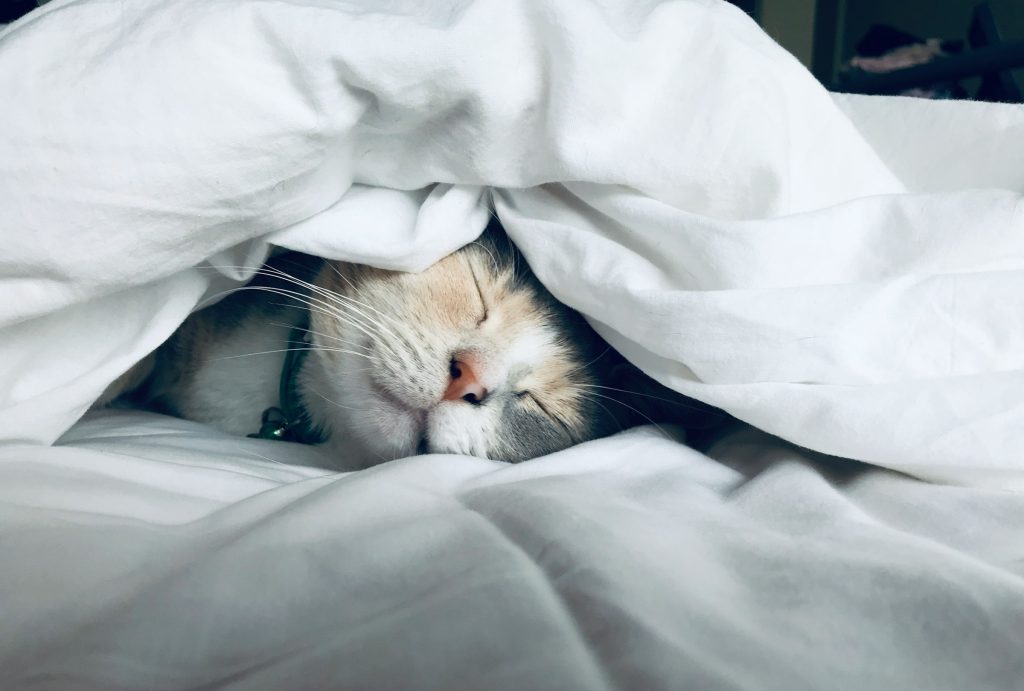Are you constantly waking up tired, even after what seems like a full night’s rest? You’re not alone. In today’s busy world, poor sleep quality is a growing issue that affects millions of people. Sleep hygiene—habits and practices that promote better sleep—is one of the most important yet overlooked aspects of a healthy lifestyle. Thankfully, improving your sleep hygiene doesn’t require drastic changes, but small tweaks can make a world of difference. Explore the top sleep hygiene tips to help you achieve restful, rejuvenating sleep so you can wake up feeling refreshed and energized!

Why Sleep Hygiene Matters More Than Ever
Sleep is essential to overall health and well-being, affecting everything from cognitive function to mood and immune response. Yet, the National Sleep Foundation reports that around 35% of adults in the U.S. get less than the recommended 7-9 hours of sleep per night. Poor sleep hygiene, including irregular bedtime habits, exposure to blue light, and stress, contributes to this growing epidemic of sleep deprivation.
In 2024, sleep hygiene is a hot topic, with more people prioritizing mental and physical wellness. The good news? You don’t need to overhaul your life to see results. Implementing just a few key sleep habits can dramatically improve your quality of rest.
1. Create a Consistent Sleep Schedule
One of the most effective ways to enhance your sleep hygiene is by sticking to a consistent sleep schedule. Going to bed and waking up at the same time every day helps regulate your body’s internal clock, known as the circadian rhythm.
Benefits of a Regular Sleep Schedule:
- Better Sleep Quality: Consistency helps your body understand when it’s time to wind down and wake up.
- Improved Mood and Focus: With a set schedule, you’ll experience fewer mood swings and mental fog during the day.
- Easier Mornings: Waking up at the same time every day eliminates the need for multiple alarms and makes mornings less of a struggle.
Pro Tip: Even on weekends, try to wake up within an hour of your regular weekday wake-up time to avoid disrupting your circadian rhythm.
2. Limit Exposure to Blue Light Before Bed
Blue light from phones, tablets, and computers can trick your brain into thinking it’s daytime, disrupting melatonin production—the hormone responsible for sleep. To improve your sleep hygiene, limit screen time at least an hour before bedtime.
How to Reduce Blue Light Exposure:
- Use Night Mode: Most smartphones have a “night mode” setting that reduces blue light exposure during evening hours.
- Blue Light Glasses: If avoiding screens before bed isn’t an option, consider wearing blue light-blocking glasses.
- Unplug Earlier: Try reading a book or listening to calming music instead of scrolling through social media before bed.
Why it matters: Reducing blue light exposure allows your body to produce the melatonin it needs to prepare for sleep, leading to more restful nights.
3. Create a Relaxing Bedtime Routine
A relaxing bedtime routine signals to your body that it’s time to transition from wakefulness to sleep. Activities such as reading, meditating, or practicing light stretches can help you wind down and prepare for a good night’s rest.
Tips for a Calming Bedtime Routine:
- Reading: Choose a non-stimulating book—nothing too exciting that keeps you up!
- Meditation or Deep Breathing: Mindfulness practices help reduce stress and calm the nervous system.
- Stretching: Gentle stretches can help release tension in the muscles, making it easier to relax into sleep.
Pro Tip: Avoid intense exercise right before bed, as it can increase adrenaline and make it harder to fall asleep.
4. Optimize Your Sleep Environment
Your bedroom environment plays a major role in sleep quality. Creating a sleep-friendly environment can help you fall asleep faster and stay asleep longer.
Ways to Improve Your Sleep Environment:
- Cool Temperature: The ideal bedroom temperature for sleep is around 60-67°F (15-19°C). A cooler room helps your body lower its core temperature, which is essential for falling asleep.
- Darkness: Invest in blackout curtains or wear a sleep mask to block out light, as darkness helps promote melatonin production.
- Reduce Noise: Use earplugs or a white noise machine to drown out any disruptive sounds. White noise can mask background noise and create a more peaceful atmosphere.
Why it works: Optimizing your environment for comfort and tranquility can significantly enhance your sleep, helping you wake up refreshed and ready to tackle the day.
5. Watch Your Caffeine and Alcohol Intake
Caffeine is a stimulant that can stay in your system for up to 8 hours, making it harder to fall asleep if consumed too late in the day. Similarly, while alcohol may help you fall asleep initially, it can disrupt your sleep cycle and reduce sleep quality.
Tips for Managing Caffeine and Alcohol:
- Avoid Caffeine After 2 PM: Limit your intake of coffee, tea, or energy drinks in the afternoon and evening to avoid interference with sleep.
- Limit Alcohol: If you drink alcohol, do so in moderation and try to avoid consuming it right before bed. Alcohol can lead to fragmented sleep and reduce the restorative effects of deep sleep.
Why it’s important: By managing your caffeine and alcohol intake, you can avoid disruptions to your natural sleep cycle and improve both the quantity and quality of your sleep.
6. Practice Mindfulness and Stress Management
Stress and anxiety are major sleep disruptors. The more stressed you are, the harder it is to fall asleep and stay asleep. Incorporating mindfulness and stress management techniques into your daily routine can help improve sleep hygiene.
Stress-Relieving Activities:
- Journaling: Writing down your thoughts before bed can help clear your mind and reduce anxiety.
- Progressive Muscle Relaxation: This technique involves tensing and then relaxing each muscle group in your body, which can help reduce physical tension and mental stress.
- Mindfulness Meditation: Practicing mindfulness helps focus your mind on the present moment, reducing the racing thoughts that can interfere with sleep.
Pro Tip: Establish a nighttime ritual that includes a mindfulness practice to calm your mind before bed.
Conclusion
Improving your sleep hygiene is one of the simplest yet most effective ways to enhance your overall health and well-being. By adopting practices such as maintaining a consistent sleep schedule, reducing blue light exposure, and managing stress, you can dramatically improve your sleep quality. Implementing these top sleep hygiene tips will help you wake up feeling rested, refreshed, and ready to take on the day.
References:
- National Sleep Foundation. (2023). Sleep Hygiene: Healthy Sleep Habits for Better Sleep. Available at: National Sleep Foundation
- Mayo Clinic. (2023). Sleep tips: 6 Steps to Better Sleep. Available at: Mayo Clinic
- Harvard Health. (2023). Improving Sleep Quality Through Good Sleep Hygiene. Available at: Harvard Health
- American Psychological Association. (2023). How Stress Affects Sleep—and How to Improve It. Available at: APA
- Sleep Foundation. (2023). Effects of Blue Light on Sleep and How to Combat It. Available at: Sleep Foundation









